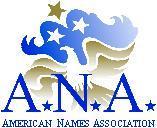
July 11, 2003
Ms. Caroline Saucer, Editor
BestWeek Publications
Re: Letter to the Editor concerning
BestWeek’s July 8, 2003 David Pilla article,
"Lloyd’s
Execs See Greater Opportunities . . ." [click here
to retrieve article]
Dear Ms. Saucer:
Factual inaccuracies in David Pilla’s article highlight the need for independent verification of Lloyd’s financial reports and statements made by its executives
For example, Lloyd’s director of worldwide markets, Julian James, is quoted by Pilla as saying "Right now we have, in a bank vault just down the road in Manhattan, $9 billion sitting in our reinsurance trust fund." In fact, Lloyd’s only has approximately $2 billion in its U.S. situs reinsurance trust fund. A New York Insurance Department official recently confirmed this amount to me.
This discrepancy is especially significant because Lloyd’s wants U.S. regulators to reduce its members’ reinsurance collateral requirements from 100% of gross liabilities to 50% of premiums. By misstating the amount in the reinsurance trust fund (by 450%), Lloyd’s creates the impression that its underwriters’ reinsurance liabilities are over-collateralized.
To further illustrate this point, I refer you to a BestWire Services story that appeared on June 17, 2003 ("Pinchin Set to Guide Lloyd’s Reinsurance and Claims Strategies"). In that article, another Lloyd’s executive, Jeremy Pinchin, "estimated that 70% of the market’s business is reinsurance." Lloyd’s Chairman Lord Levene announced last month that they wrote more than $8 billion in U.S. premiums last year. If anywhere near 70% of that underwriting was reinsurance, it is hard to imagine how $2 billion in trust could be sufficient to collateralize 100% of their outstanding reinsurance liabilities for that year alone.
This void of dependable information means that ratings agencies, such as AM Best, insurance regulators, policyholders and the general public cannot safely rely upon the public statements of Lloyd’s officials or even Lloyd’s written reports. Lloyd’s must be required to provide U.S. insurance regulators with independently verified information, presented in the statutory format required of domestic insurers by the NAIC. It would also help if insurance industry publications did more fact checking prior to publishing statements made by Lloyd’s executives.
The stakes are too high for U.S. businesses to rely upon unverified information. American insurers and their policyholders simply cannot afford to have $1 billion or more reduced from the collateral underpinning their reinsurance at Lloyd’s based on misleading and unsubstantiated information disseminated by Lloyd’s. The solution is simple: "trust, but audit."
Very truly yours,
J.F. "Jack" Shettle, Sr.
Chairman
American Names Association
Reports - | - Contact Truth About Lloyd's